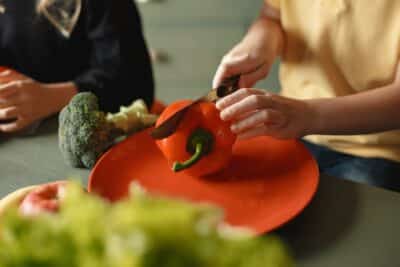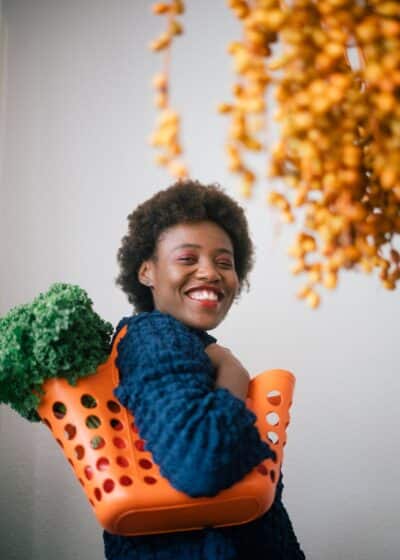When Amy’s Kitchen’s co-founders Andy and Rachel Berliner launched their frozen food brand in 1987, they set out on a mission to make organic, vegetarian food with quality ingredients grown by farmers who shared that vision.
While the company has expanded to include a menu of more than 250 products, every item is crafted with the same meticulous attention to flavor and care as the initial vegetarian potpie that launched its label.
It’s one of the many reasons why it’s not a surprise the Berliners are still serving their homemade foods to family and friends and experimenting with recipes that could potentially lead to new items in the brand’s line.

IMAGE: PEXELS
“Andy and Rachel have always been wonderful hosts. They just love having people eat around their dinner table,” Amy’s Kitchen President Paul Schiefer said during an episode of the “Responsibly Different” podcast, which shines a spotlight on companies that have received the coveted B Corp Certification. Amy’s Kitchen became B Corp-certified in 2020 and joined more than 3,000 other businesses credited with making a highly significant social and environmental impact.
“Andy and Rachel always really thought a lot about food and the origin of that food. And when they created the food company, really their goal was to create food that was just as good as what they would serve to their guests around their table,” Schiefer shared. “And today, actually, they often do serve Amy’s at dinner parties, which I think shows how much they believe — and we all believe — the food is really wonderful.”
However, Schiefer says even after starting their company, both Berliners wanted to define what that meant in their own ways. He describes Rachel’s childhood of growing vegetables in her organic garden as influencing how she approached ingredients for the brand. “For her, it was just practical,” Schiefer said. “It’s like, ‘The food tastes delicious without the chemicals; why do I need to put any into them or into the gardening process?’”
The Amy’s executive says Andy’s angle ascended from a social perspective. “He went out and met farmers and got to understand the farming side,” Schiefer explained. “And he had heard a few stories back in the late ’80s of large cancer clusters in some of these farming communities and just the impact that all the spraying was having on the people working on the farm or their children. And for him, it just was more of, ‘This doesn’t feel right.’”
Schieder added that Berliner was clearly ahead of his time in pursuing answers for what was happening in the agricultural sector. “I don’t think all the evidence was in, like it is today, around glyphosate [a potentially toxic chemical] and some of these other commonly found parts of the conventional ag system,” Schiefer added. “But he just said, ‘I don’t need to do this, so why do I do it?’ It was a very instinctual decision.”
The sustainability-minded purveyor said after extensive research, the Amy’s Kitchen crew discovered that organic farming is better for the climate. “A lot of the new studies are showing more carbon sequestration in organic farms because of the health of the soil and less reactive nitrogen,” Schiefer said. “It seems to be reducing global warming potential overall. More biodiversity. So really great environmental outcomes are being produced through organic systems.”
He added that while there’s been a lot of press and awareness about the benefit of plant-based foods from an environmental perspective, Amy’s Kitchen has conducted its own research on the benefits.
“We actually studied this,” Schiefer recalled. “We worked with a group of students at a university MBA program and we found that our plant-based proteins have 77% less CO2e than animal-based proteins. And if you add it all up, basically, looking at all of our tofu and our beans rather than chicken and beef that we don’t use in our products, it’s more of a savings of carbon than our entire internal operation.”
With the foundation of Amy’s Kitchen built around vegetarian food and all the animals’ lives saved because of that intention, he says it’s compelling to actualize how the brand is making a difference.
“We really believe that you can do all of that together,” Schiefer shared. “You don’t have to create delicious food, but have it destroy the planet. In many ways, actually, the strategies that are most exciting are the ones where that really works together.” At the end of the day, Schiefer says Amy’s Kitchen still cares about putting delicious, convenient food on the tables of people at every income level.
“We’ve done a lot of work to connect with people with special dietary needs, be it gluten-free, soy-free, dairy-free, vegan-based diets, and to do it well,” Schiefer explained. “We want to be able to create this company, create this food in the way that we feel is good for the human body, and it’s good for the planet that we all call our home, and that we try to own our externalities when it comes to the food system.”

COMMENTS